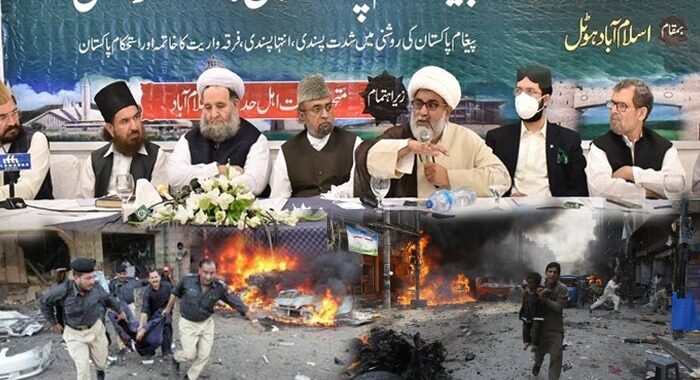Terror attacks; whether suicide, bombings or other violent means, have become the hallmark of global terrorism. Pakistan, too, has suffered tremendous losses at the hands of such attackers, who have especially targeted government institutions, ordinary citizens, and religious minorities. In a deeply troubling pattern, many of these attacks have been carried out using children, who are groomed and radicalised by extremist groups. These acts are not just tragic, they are outright forbidden (haram) in Islam.
Recognising the grave threat posed by this ideology, more than 1,800 Islamic scholars from all major schools of thought in Pakistan issued a unanimous fatwa under the banner of Paigham-e-Pakistan, declaring suicide attacks and terrorism as un-Islamic and haram. According to this collective religious ruling, anyone who incites, supports, finances, or participates in such acts is a rebel (baghi) against the state, and the Islamic Republic of Pakistan has full legal and religious authority to take all necessary measures against them.
Religious leaders and imams have a vital role to play in spreading this message. Public awareness is essential to prevent the exploitation of vulnerable individuals by terrorist groups. The Holy Qur’an offers clear guidance: “Do not kill yourselves. Surely, Allah is Merciful to you” (Surah al-Nisa: 29). Numerous hadiths reinforce this teaching and warn of severe consequences for those who commit suicide.
In one well-known hadith, the Prophet Muhammad (peace be upon him) stated: “Whoever kills himself with an iron weapon will be punished with the same weapon in the fire of Hell, eternally.” (Bukhari & Muslim). The Prophet’s refusal to lead the funeral prayer of someone who had committed suicide further underlines the severity of the sin. If suicide alone is condemned in Islam, then committing suicide to take the lives of others amounts to a double crime: one against the self and another against humanity.
Furthermore, if a suicide attack is carried out with the intent to kill other Muslims or even non-Muslims living peacefully under the protection of the Islamic state, the sin becomes even greater. The Qur’an says: “Whoever kills a believer intentionally, his recompense is Hell, to abide therein forever, and Allah’s anger and curse are upon him” (Surah al-Nisa: 93). Regarding non-Muslims living in peace, the Prophet (peace be upon him) warned: “Whoever kills a non-Muslim with whom we have a treaty will not smell the fragrance of Paradise.” These warnings are not abstract—they are divine prohibitions.
Suicide attacks in Pakistan today represent three compounded sins: suicide, the murder of innocent people, and armed rebellion against a legitimate Muslim government. No political motive or ideological justification can make such actions permissible. Supporting them in any form; logistically, financially, or even ideologically, is equivalent to supporting a rebellion against Islam and the state itself. As per Paigham-e-Pakistan, such acts are not only anti-state, they are anti-Islam.





